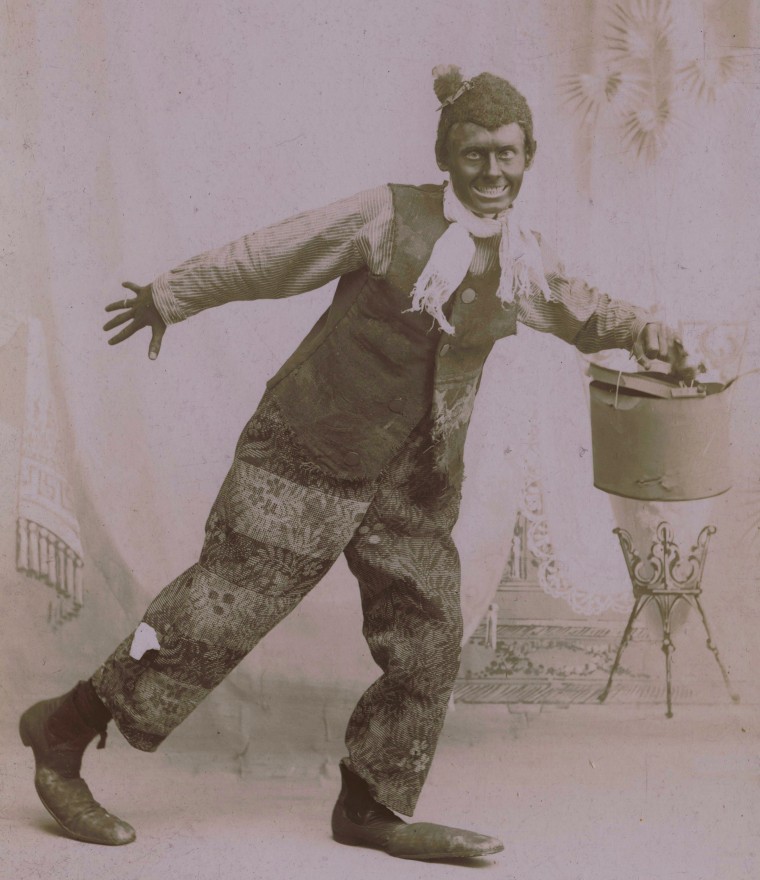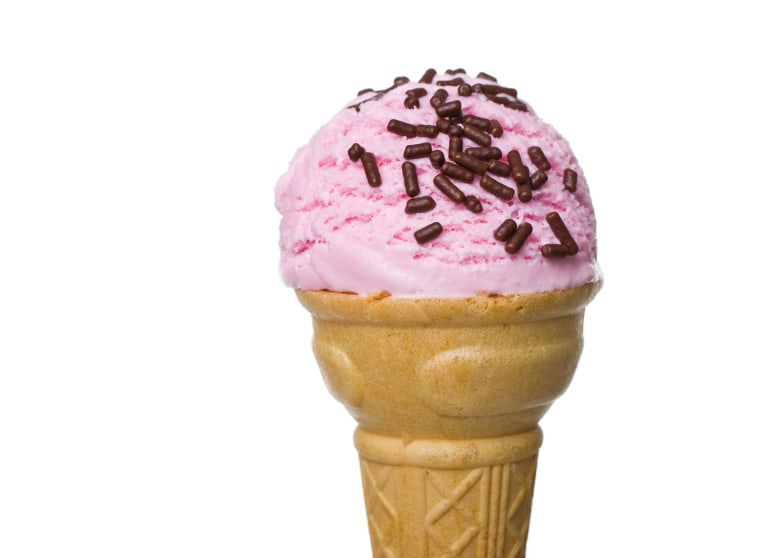Reddit Funny Phrases for Like a Cakewalk
Ice cream truck song
One of the iconic tunes that ice cream trucks play nationwide to alert neighborhood children of their arrival is a sign of summer for many. But few may have considered the song's origins. Actor Harry C. Browne released the song in March 1916 with Columbia Records under the name "N----- Love A Watermelon, Ha! Ha! Ha!" The song borrows heavy inspiration from the early 19th-century song "Turkey in the Straw." It hinges on offensive stereotypes, namely that Black people all like watermelon.
After a brief intro, this call-and-response sequence ensues:
Browne: "You n------ quit throwin' them bones and come down and get your ice cream!"
Black men: "Ice Cream?!?"
Browne: "Yes, ice cream! Colored man's ice cream: WATERMELON!"
The song continues in appalling fashion until Browne's chorus:
"N----- love a watermelon ha ha, ha ha!/ N----- love a watermelon ha ha, ha ha!/ For here, they're made with a half a pound of co'l/ There's nothing like a watermelon for a hungry coon."
Browne was one of many to add new lyrics to "Turkey and the Straw." Some variations have had silly nonsensical lyrics, while others have mentioned "Zip Coon," a minstrel show character meant to mock a free Black man attempting to assimilate within high white society. During these shows, the character was played by a white actor in blackface and sought to prove Black people's intellectual inferiority. The actor would dress in fancy garb and use big words, much to the audience's delight.

Uppity
Defined by the Oxford English Dictionary as "above oneself, self-important," the word "uppity" has a sordid past when used in reference to a Black individual. Originally found in Joel Chandler Harris' "Uncle Remus" books, the word was used among Black people but became popular among white society intending to demean Black folks. One article on the history of lynchings states that most of the lynchings from 1880 to 1930 were perpetrated against activists, labor organizers and Black men and women who violated white expectations of Black deference, and were deemed "uppity" or "insolent."
A quick search on the Corpus of Contemporary American English reveals that "uppity" usually was and continues to be followed by the N-word or other minority groups in the United States.
Even former President Barack Obama and Michelle Obama were subjected to this word throughout his presidency. In 2011, Rush Limbaugh directed the term at the first lady in reference to her decision to take her own Boeing 757 aircraft with her children to a NASCAR event ahead of the president. Limbaugh called this "a little bit of uppity-ism," causing backlash surrounding the use of the term.
Jimmies
If you are a New Englander, you have likely been asked if you would like "jimmies" on your ice cream. It's simply another way to ask for chocolate sprinkles.

There are competing opinions on the origin of the term. According to Wright, these brown sprinkles were called jimmies as a form of "othering" from the regular sprinkles. The fact that they are brown suggests to Wright that they represent little Black people. Still other etymologists believe that the term comes from the Jim Crow laws used to segregate the South, with jimmies representing those Black people bound by these laws.
Just Born, the candy company best known for its Peeps, claims jimmies were named after James Bartholomew, the employee who operated the first sprinkle machine. But whether Just Born actually invented the name or the treat is still up for debate.
And this wouldn't be the first sugary treat to have a name tied to racism; the companies behind Aunt Jemima syrup and Eskimo Pie announced they will rename these products. Meanwhile, an article published by NPR reported that in 1923, a candy made out of Brazilian nuts dipped in chocolate sold under the name "n-----'s toes."
Master bedroom
The word "master" harks back to the time of slavery in the United States when white male plantation owners were addressed with the term. But the word also suggests that a master is a man. Oxford English Dictionary lists numerous definitions, and nearly all of them mention the word denotes a man in power.
The first printed use of "master bedroom" came in a 1926 Sears catalog to describe a lavish home, but only sparked discussion in the past few years.
As a result, the Houston Association of Realtors ended its use of the term "master bedroom," citing its ties to slavery. Instead, HAR will use "primary bedroom" and "primary bathroom" in its listings. And although Wright supports the decision, she understands people's outrage.
"That's where 'master bedroom' gets people really angry because most people aren't thinking about slavery when they say 'master bedroom,' they're just thinking it's the big room," she said. "To me, that's why you should talk about it. If there are people that are saying, 'This word makes me feel like I'm being called out for my race and not my behavior,' then it obviously still has that connotation for some people."
For Wright, the word is less about its connection to slavery and more about what it says about the "subjugation of women." She likened the change to how politicians have eliminated "chairman" for the more inclusive term "chairperson." Indeed, the move toward gender-neutral language is ongoing. The Associated Press, for example, has even eliminated the usage of "manhole" in favor of "maintenance hole."
As word choice among advertising, retail and media companies evolves, these new terms will slowly become normalized in everyday culture.
Sold down the river
The phrase refers to the practice during the time of slavery in the United States when plantations in the Upper South would sell troublesome enslaved people to the brutal plantations in the Deep South in states like Mississippi. Oftentimes, it was viewed as a death sentence. According to the Mississippi Encyclopedia, the "river" in question almost always meant the Mississippi or Ohio rivers.
Cakewalk
A word often used to denote a task that is easy to perform, the truth behind this word has to do with a different kind of performance that was not so easy. Oxford English Dictionary writes that a "cakewalk" was a dancing contest judged by plantation owners — with a cake as the prize.
Unbeknownst to those who held people in slavery, it allowed the enslaved dancers to mock and oppose the white Southern elite. Couples dressed in their finest clothing, and according to the Smithsonian National Museum of American History, would dance until the music stopped. Then, dancers would land on a number, and if it was called "they would take the cake."
Source: https://www.today.com/tmrw/everyday-words-phrases-racist-offensive-backgrounds-t187422
0 Response to "Reddit Funny Phrases for Like a Cakewalk"
Postar um comentário